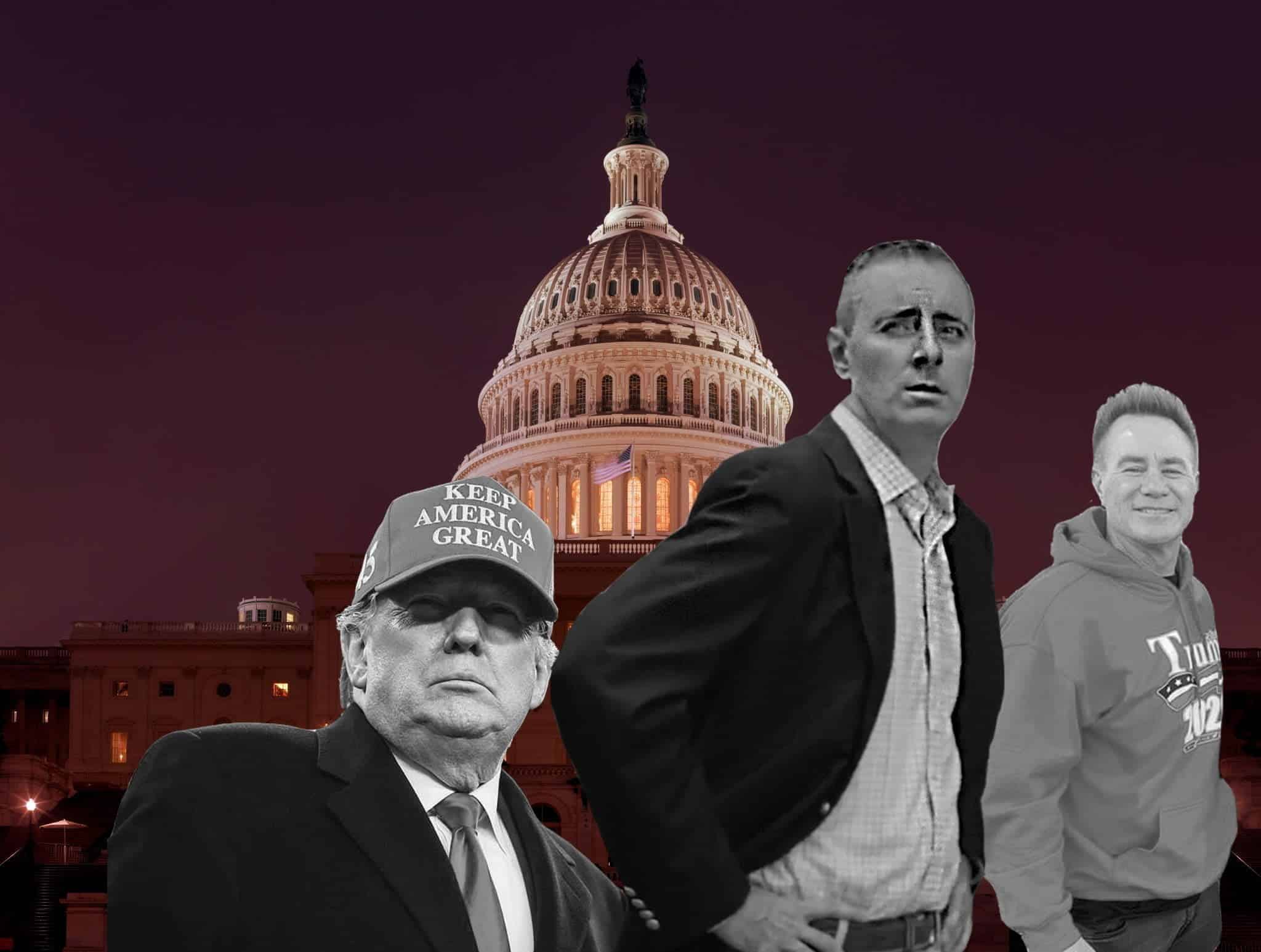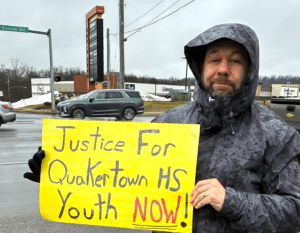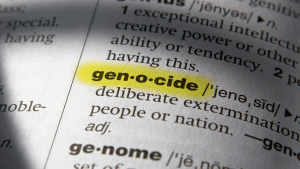As this 2022 election season heats up, it is certain that Republican Congressman Brian Fitzpatrick will increase the frequency of his mentions of the Problem Solvers Caucus. Talk of the Problem Solvers has become such a mainstay of Fitzpatrick’s scripted public appearances that it is a punchline for many in the progressive community.
The Problem Solvers Caucus (PSC) is one of several hundred organized groups of lawmakers who work together in the United States House of Representatives. Some are focused on a specific topic or region, others share a particular political philosophy. The PSC boasts that they maintain equal numbers of members from each party, so no one ideology has control of the group. There are two chairpeople of the caucus, one Democrat and one Republican. PA-01’s own Brian Fitzpatrick is the Republican chair.
How many times can Brian Fitzpartick say “problem solvers caucus”:
While that all sounds quite collegial and bipartisan, a bit of digging into the background and funding of the PSC shows that the money backing the group has a definite partisan lean. The political organization No Labels advocated for the formation of the group. The No Labels website says “that the only way to make sustainable change was to begin working with the other side across the aisle. Eventually, with our encouragement, [lawmakers] formed in 2017 what’s now called the Problem Solvers Caucus.”
And while the group behind the Problems Solvers Caucus claims to have No Labels, much of their funding comes from hedge fund and private equity leaders whose politics land them on the far right side of the aisle. The Daily Beast included a list of some of the mega-donors who have backed the No Labels, and it includes many mainstays of Trumpworld:
“According to internal documents obtained by The Daily Beast, No Labels encouraged financiers known for backing hyperpartisan causes to back its own super PACs. Among those courted were individuals who’ve bankrolled massive parts of the Republican Party’s infrastructure, including David Koch, former AIG head Hank Greenberg, and billionaire hedge-fund manager Paul Singer; as well as top supporters of President Donald Trump, including PayPal founder Peter Thiel, businessman Foster Friess, and Home Depot founder Ken Langone.”
While the founding and funding of the Problem Solvers Caucus at the hands of No Labels is far from immaculate, if they actually managed to solve problems, their shady background would be a mere footnote. But, as Representative Susan Wild, our Democratic lawmaker neighbor just to the north of Bucks County said recently to the New York Times, “Tell me a problem they’ve solved.”
One might expect that the website of any caucus would be chock full of the most hyperbolic praise for its own accomplishments, alongside inflated claims. But the Problem Solvers Caucus website was remarkably bereft of any actual solutions and reveals the group to be little more than a coffee klatch with the occasional document or proposal to justify their existence.
What follows are the actual claimed accomplishments of the Problem Solvers, as excerpted from their own promotional content:
On COVID-19, they released a document.
On health care and prescription drug pricing, they released a list of principles.
On Immigration, they took a trip and had a conversation.
On Infrastructure, they released a proposal.
On Criminal Justice Reform, they say they helped pass a bill.
To fact check this claim, please note that while lawmakers from both sides of the aisle, including the Problem Solvers Caucus, did vote for this bill, they cannot claim to have played a large role in the crafting of the legislation. Several lawmakers, including Democratic Senator Dick Durbin of Illinois, have spent the majority of their careers – long before the creation of the Problem Solvers Caucus – building the coalition to pass the First Step Act.
On Rules Reform, they pushed a new set of House rules on Nancy Pelosi.
This is a particularly interesting claim, and one that The Intercept addressed in their previously mentioned article, “Here’s a Better Name for No Labels: Republicans.” They observed, “The House Problem Solvers Caucus, which was produced and is funded by No Labels, made headlines recently in its quest to hold up Nancy Pelosi’s speakership bid unless she supported their “Break the Gridlock” rule changes.
But the full suite of reforms would have just ended up benefiting the GOP; after all, it’s not like the Problem Solvers Caucus pressed for these rules when Paul Ryan was up for the position. Selectively tying the hands of Democratic leadership in the wake of a Democratic rout in the [2018] midterms isn’t balanced governance, it simply helps the right.”
On School Safety, the Problems Solvers shared a quartet of bills related to school safety that they helped create and pass in 2018.
It’s hard to claim that any problems were solved in the wake of Uvalde and all the school shootings that have occured in the time after the enactment of the PSC-backed legislation.
And that’s it.
So the next time you hear Republican Congressman Brian Fitzpatrick go on at length about the Problem Solvers Caucus that he helps lead, remember exactly what he is bragging about: a caucus funded by Republican dark money, dedicated to maintaining the status quo. He is bragging about a cluster of 50+ lawmakers who have produced a handful of proposals, a trip, a conversation, and a few bills that clearly never solved anything.
The Problem Solvers Caucus is a marketing ploy and a joke. And so are Brian Fitzpatrick’s claims that he is moderate, bipartisan, and actually accomplishes anything in Congress.






